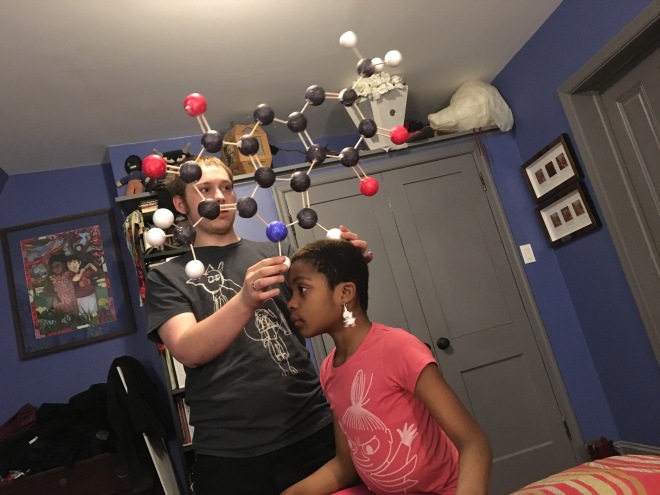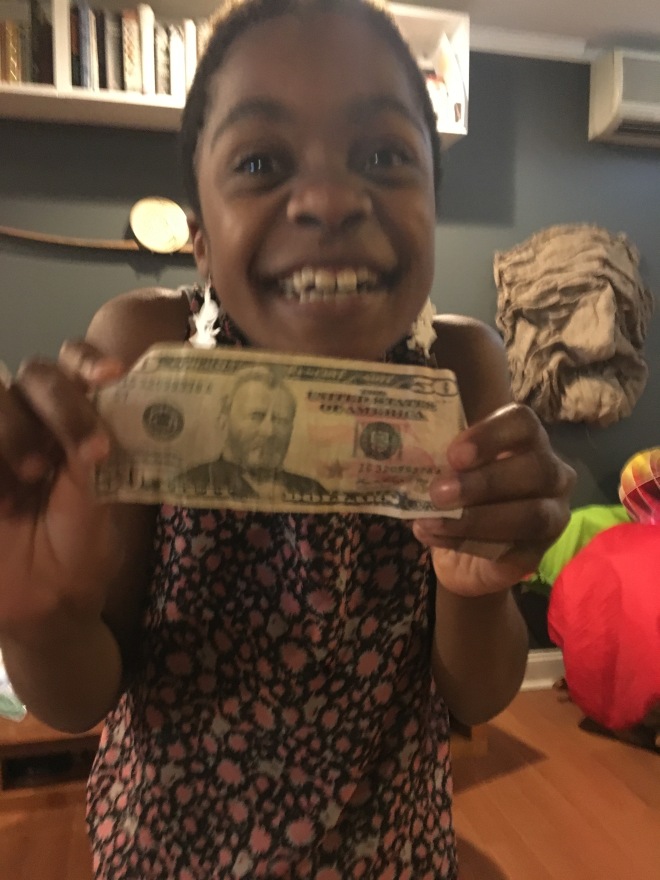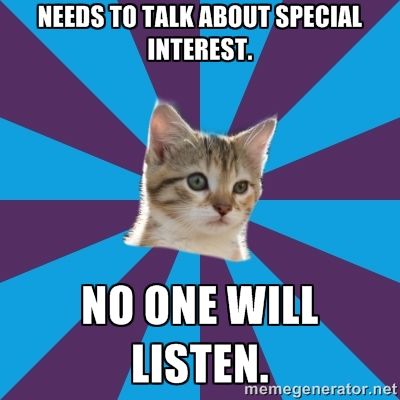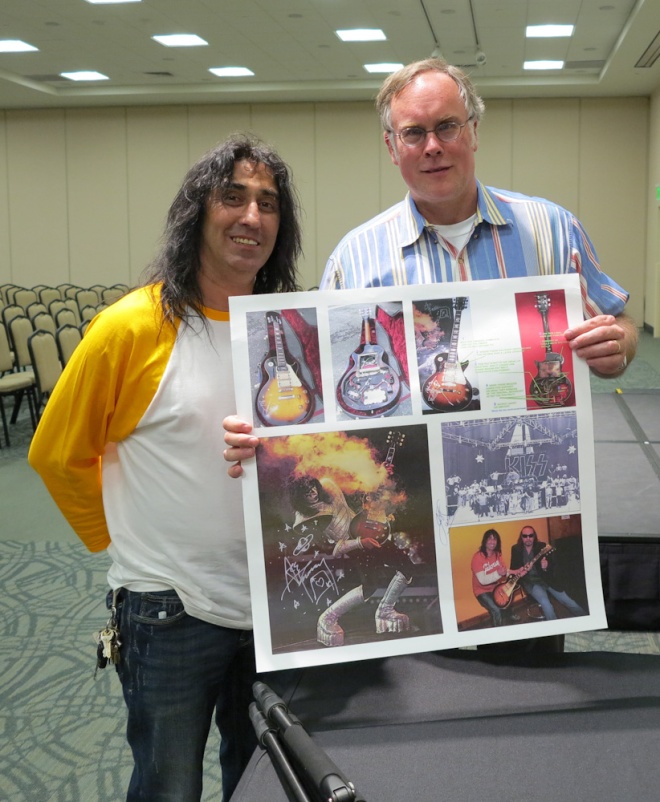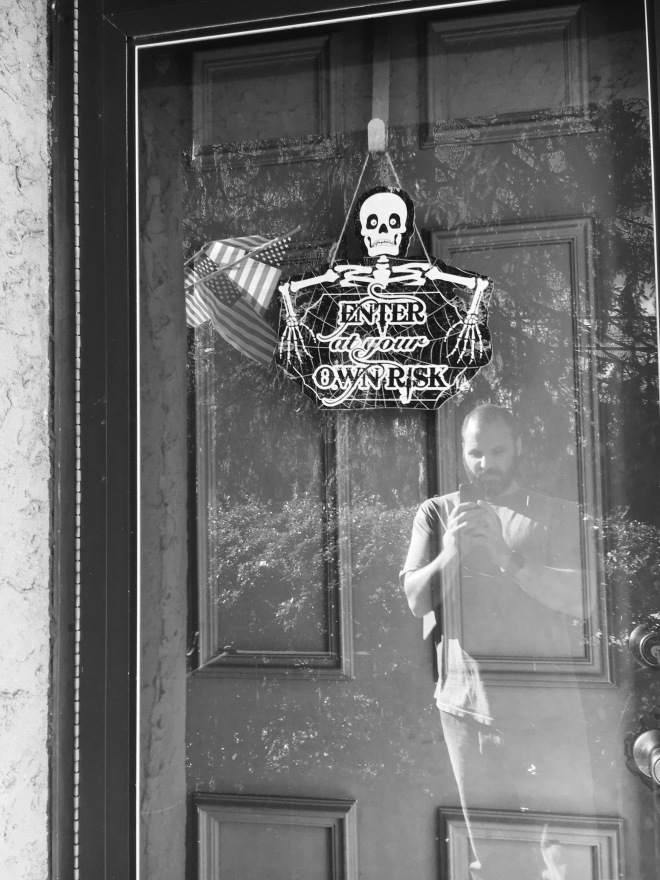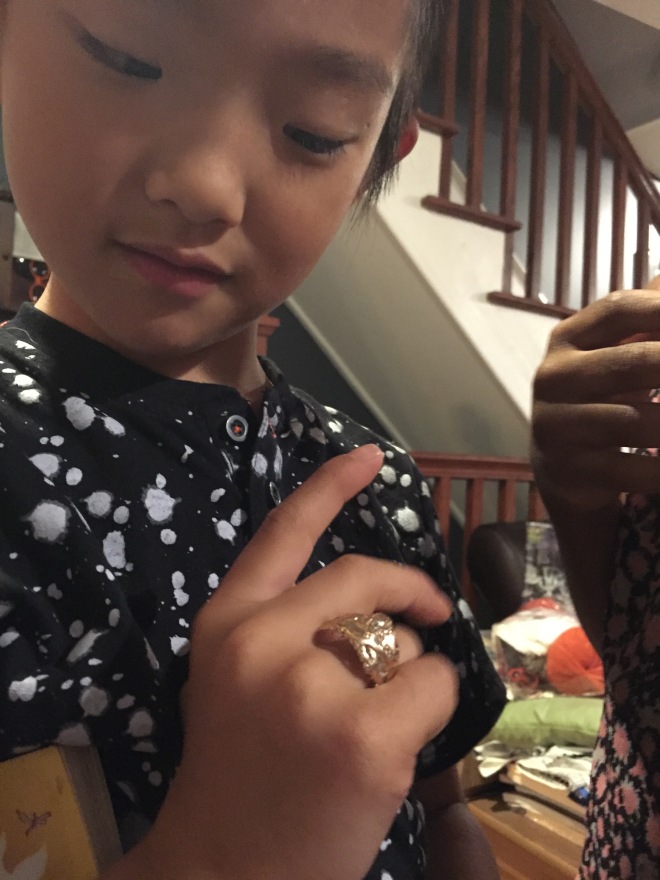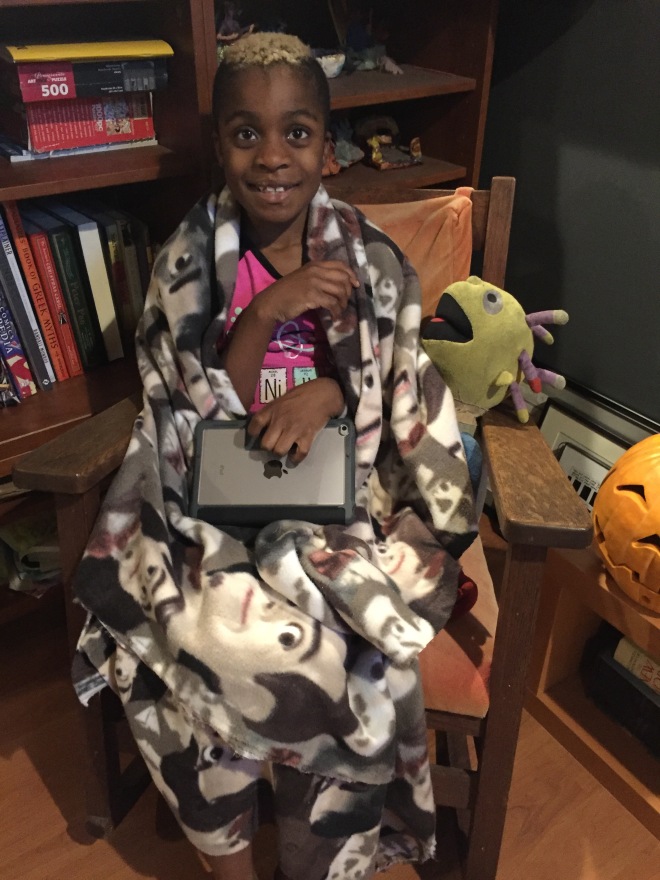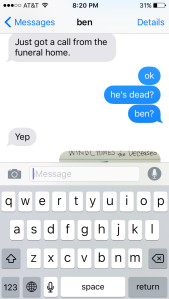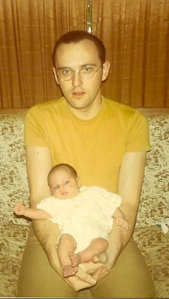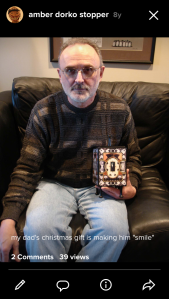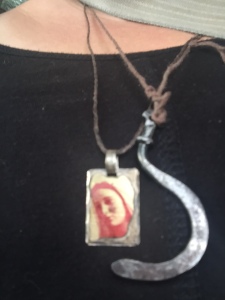Tucker’s Spring Quarter at school had been a tough one. Ben had been accruing free nights at Kimpton hotels due to all the business travel he’s been doing, and, while he was doing all that traveling, Tuck was doing double duty helping make kid breakfasts, getting them to bed at night, and everything else, on top of all his schoolwork.
Some of Ben’s free Kimpton nights were going to go out of date, and it was use them or lose them, so he had been encouraging me to get Tuck out of town at the end of term. Once or twice we have gone to New York, but usually, Washington DC is our spot, and we are just like two little seventy-five year old ladies when we travel together. We get teary and mopey when we Facetime goodnight with the kids, we are homesick half the time we are there, and our big splurge is to split a frozen margarita at Tortilla Coast.
The Spring Quarter had been hard because Tuck was enrolled in a writing-intensive elective. The struggle that it takes for Tuck to organize words to paper is tremendous. To hear him describe it is, word for word, exactly the struggle my Aspergian father used to have (and the issues that would come up in his performance reviews at his job, before he retired). Even in earlier years of his undergraduate career, “Tuck has a paper due” meant a little less whiskey in Ben’s yearly bottle that week, and Xanax for me. We would stay up half the night to proof all his papers. We can’t do that now. Tucker has advanced so much academically that we have no idea what the papers say. i have seen Tucker “write” things and I don’t even know why there are LINES on the paper, it’s so full of symbols.
Tuck already had writing-intensive courses in hard sciences for the term, and when he said he was taking the elective on women writers, I really did say, “I wouldn’t do that if I were you.” Which, to Tucker, meant “If Amber were a 22-year-old male neurochemistry major, she would not take this course,” and he registered for it.
He despised it. I did say “I told you so,” but, of course, I had only said the riddle-like, labyrinthine neurotypical version of what I wanted to say, when what I should have said was FUCK NO DON’T TAKE THAT CLASS. I was sure the writing would slow him down like cement boots, for the whole term. It did. I was sure it would be Jane Austen and Toni Morrison and please God no, “The Yellow Wallpaper”. It was. (He thought Sula was okay but actively disliked everything else.) I mourned that time that Tuck suddenly “had” in his schedule to read “literature” was keeping him from reading amazing things, like Russell Hoban’s Riddley Walker, or any of the books we’d talked about over the years. If he’s not reading science stuff, we are reading autism stuff. Literature has not made it into our shared family life, except for his reading of his childhood favorite Perloo the Bold to the children, as well as half the Moomin series. (And these things are VERY meaningful to me. But I, too, want to share books that I love with Tucker. And he had to read the Yellow Fucking Wallpaper.)
So it was a shitty term. On the day of his last on-campus final — he also had a take-home final (essay format) for the elective — I was going to meet him at 30th St. Station. At the very most, all he’d have to do is finish up what he had left on the take-home final, which he’d been working on diligently for a week already. He’d be done, and we’d get to walk around DC for a day and a half. Yay!
Tuck got to the train station, relieved that the final he’d just taken was over, but a little daunted, he said, about how much he had left to write for the take-home final.
“But you’ve been working on it all week,” I said. “How can you not be almost done?”
We will come back to that little point of stupidity, that rhetorical question, later on.
On the train, Tuck passed out like he had been chloroformed. We got to DC and checked into our hotel while he worked on the take-home final.
I read, and he wrote, until a little after nine. He turned in the paper. We had not eaten since we had been in Philly, and we went out and got really good Indian food, and it was really really over. And it was such a relief.
The next day we got up and ran out for coffee, and went to an amazing comic book store and bought presents for the kids, and had creative ideas about stuff we wanted to write and make and we walked to Tortilla Coast and split that frozen margarita (we are talking massive celebrating here). We talked more and more about creative stuff he wanted to do while he was on spring break, and masks and puppets and foam and wheeee, and we stopped for coffee again, and Tucker took out his laptop.
And discovered that he’d had a research paper assigned earlier in the term, that he had somehow missed seeing at all, and which was now overdue.
We were just shattered. I texted Ben. Ben said he could literally HEAR Tucker’s patented raccoon-like under-eye circles forming, all the way from DC to Philly.
Meanwhile, Tucker had managed to contact the professor, explain his oversight (there wasn’t much to explain — he had just missed it) and, since he’d been so topnotch in the class otherwise, was granted a swift, looking-the-other-way extension.
He got an extension on the paper, but he still had to WRITE it.
Starting right then.
Having been given the most enormous hotel room I have ever seen, we may as well have been in different cities, although during the hours we actually believed he was free on Friday night, Tucker had “functionalized the runway” of the room by doing barrel rolls in it. Also, he kept running into other Scots people on elevators, although I missed some of that. Now, he was just writing.
From home, I had Ben help me sign up for the Sundance documentary channel and tried to watch a movie about JT Leroy. When I’d been at 30th St. Station waiting for Tucker, I’d found a recent Richard Price novel out in paperback, and I hadn’t even known he had a new book out, so yes, being in a hotel reading a brand new Richard Price novel was pretty good.
Around one am, we ordered delivery from a place called “Meat in a Box”.
I really had needed to be away from the kids. For me, and for the kids. Because just because I do not go away on business, they cannot think that I have no business going away. I think it’s important that they understand that.
But we got home on Sunday, pretty bedraggled, and happy to give the kids their gifts from the comic book store, but the kids already knew; something had gone wrong. And Tucker’s break hadn’t really started. And he was still writing a paper.
It was, at that point, 33 hours since he had found out the paper existed at all. It was a four page paper.
He was still writing it. He had done little else.
Tuck is an excellent writer. Professors have said that they hope whatever field he goes into is one that requires writing. He writes beautiful letters to loved ones. I can think of at least five people in the world who, if their house was burning down, should have the sense to grab the beautiful letter from Tucker as the most valuable thing they have.
Tucker likes to write. He likes to write about personal things and creative things. But it’s still hard. When he started working on the Place of Articulation project, I suggested that he use Voice Memo on his phone, and offered to transcribe for him. This was not a success. When I had run out of things to do while Tuck was still writing his paper in the hotel in DC, I tried transcribing something he had dictated into his phone a bit earlier in the month, about the death of his pet rat Laertes. Half of the audio was just crying. I couldn’t finish it.
Tucker is not only a slow writer; he is a slow speaker. When I transcribe all the interviews for the Krampuslauf Philadelphia/Parade of Spirits VOICES series, I stop approximately every nine seconds. That’s about as much as I can remember accurately. When I am transcribing something Tucker has recorded, i have a browser page open so I have something to do during the silences.
Once we were home, he got the paper in, with the extension. Finally, he was really finished the term. And I said, “Hooray! You did it!”
No I didn’t. I said. “You are going to be writing research papers for your entire career. IT CANNOT BE LIKE THIS. There has to be something. I can’t do the transcription for your scientific work. You have to write. On deadline. It’s not working. It’s making you hate something you love, AND IT CAN’T BE LIKE THIS.”
And Tucker said, “There is a program called Dragon NaturallySpeaking that I have wanted for about a decade. But i wasn’t in a position to get it.”
…
…What?
I went and looked it up online.
A DECADE? he was TWELVE a decade ago.
I said, you knew this — then? That dictation software could make writing easier for you?
And he said, to some degree, he had understood it then, yeah.
(I am not suggesting that Tuck has ever been at fault for not getting this software or for choosing to buy clothing or toys for the kids or a bike or ANYTHING over this software — we agree that somewhere along the way he lost track of this as a possible solution to a problem.)
Tucker is more than aware that I am writing about this (and has vetted every word) — because for the time being, he cannot, and I have to. He has not (yet) gotten to write many of the personal things he wants to say, because the process is so difficult. And I am very grateful to him, that I am not kept from doing what I also need to do — and write about where our Venn diagram of experience intersects — because writing about it is what I have that I can do for ME, too. It is something I have always wanted him to be able to do, and thought that all he needed, to write what and how he wanted, was more “time”.
But “time” is not the solution.
My heart broke like an egg. He knew the exact name of the software program he wanted. He didn’t hesitate for a second. He has wanted it since he was twelve. That would be seven years before being diagnosed.
But I never thought to ask the question, “are there any dictation software programs that you could use, so you could just do all the talking that you do that we don’t understand and it would magically turn into research papers, and the kids wouldn’t look at you during Facetime when you’re out of town and say ‘does Tucker have black eyes again’ because the circles under them are so big and deep and dark?”
I didn’t think to ask that question, and so it didn’t come up. I don’t think about dictation software. I think “Tucker’s smart and good at school and he’s a very slow fucking writer” but those instances seem FINITE and manageable, up until where the tide comes in and, suddenly, we are under.
How this stuff unfolds is so… miraculous but also painful.
And no matter what you read, you still find it out for yourself like you never thought it could happen to you. (This was also the year my Korean son told me he didn’t like how his eyes looked; I’d read that story in every adoption-related book we have, and i STILL didn’t see it coming.)
Asperger’s? Gotcha. The super-smart part? Yeah! But, we remind everyone so wisely, he still works hard. It’s just as hard for him as anybody! I mean, look at him go! In fact, it’s… oh. Wait.
It’s harder.
The part where he’s doing science that the vast majority of the population will never even begin to comprehend? He’s got that.
The part where you just, you know, put the words down? you know, just DO IT?
It’s NOT “just do it”. There’s no “just”. And, if you don’t figure out what the actual problem is and where the work-arounds are, there’s NO “DO IT”.
In the summer of 2013 — “The summer Tucker came,” we say at home — Ben and I tried to teach him to cook two things that we had expected he could take back to Georgetown with him, and have a little more autonomy and healthy eating choices. Paleo pancakes, and japchae. We watched him struggle with both of these, and kept saying “so if there’s no half teaspoon, just fill half of a teaspoon! Come on! JUST DO IT! Of course you can do it! Pretend you’re in the lab!”
Little did we know, he’s EXACTLY in the lab like is in the kitchen. The last lab he had at school, he was so worried that the professor thought he was slow or difficult, (even though he had already gotten an A), he had a meeting with him to tell him he had Asperger’s. The professor said “Yeah, I thought so. I had actually told my wife that I thought you did.” The responsibility of qualitative analysis is not enjoyable for Tucker. (Quantitative Analysis, he is better at. His average at the end of that course was over 100%.) But “cook the bacon until it’s not raw but it’s also not burnt” has the same problems as “When the solution turns yellow…” how yellow is yellow? What if it turns yellow, and then gets less yellow? Should he still take the same next step?
You can see why this would get exhausting.
Does anybody, including Tucker, wish that he was not autistic? Nope. As in the best analogy I ever read about it; you can’t make a cake and take the flour back out of it. Nothing about him needs to be fixed.
Are there functional disabilities inherent in autism? YES. Do modifications need to be made so that those disabilities are less disabling? YES.
Will Tucker know what those modifications are better than Ben or I will? PROBABLY.
Will Tucker think to take the steps to assure those modifications happen without prompting? MORE THAN LIKELY NOT.
Oh! I think I see what the problem is now.
(Today, anyway.)
Spring term was bad enough. I saw him literally experiencing stark terror at losing time to work on schoolwork when doing things like: celebrating his own birthday. My birthday. Claudia’s birthday. These times were, really, almost the ONLY times he stopped working that term.
He told me that he missed making things — masks, costumes, etc. — so much that he felt physical pain. He said this was the only time in his life he has felt this dearth, this strongly.
He had a Spring Break. He got to make stuff. We went and saw Mac Sabbath.
He bought Dragon NaturallySpeaking.
It was not his friend. He knew that it took time to get the program to “learn” his voice, and he bought an add-on program with tens of thousands of chemistry-specific words, but still, if he sat down to practice and have a little date with Dragon, he would just look and sound miserable — repeating himself, correcting himself, like he was talking to some old, deaf relative. “STOP LISTENING,” he would sometimes command.
We took a re-do on the DC weekend. It was a little different because in the interim we found that one of the Tucker automobiles was at the Smithsonian Museum of American History, so we went and saw that, and Prince had died, and one of his guitars was there too. We saw a wedding in DuPont Circle that was like a parade, with noisemakers and flags and masks.
Pretty much as we were checking out of the hotel, we passed Bill Nye in the lobby. Tucker chased him into an elevator. Literally. I got there as the doors closed and just watched the numbers go up. I texted my friend Janet, a little uncomfortable that maybe this wasn’t going to work out in a friendly way; her response was more or less “Oh right, like nobody with Asperger’s has ever cornered Bill Nye in an elevator.”
It was a better trip.
But Tucker did not look forward to practicing with Dragon, and so he didn’t do it much. Then it was summertime and he began his final co-op job for his undergraduate career, and took one class as well.
A class he had been avoiding for years.
Because people had told him how horrible and demanding it was.
And writing-intensive.
But hey, it was the only class he was taking, and his co-op was only twenty hours a week — so what better time to have it happen?
It went poorly from the get-go. The details are not that exciting. Suffice it to say that most of the grading was done on group projects, and the two other people who made up Tucker’s “group” decided early on that they were going to do pretty much nothing. I made sure that he was documenting all his correspondence, to them, and to the person teaching the class. (Who became a different person mid-term.) And then I made sure he was documenting his issues to that person as well.
When it came to the final project (a written one, supposed to have been contributed to by three people, but which Tucker was writing alone), he was literally doing nothing but eating, sleeping, and working on the paper. We could find NO metrics that he could employ to tell us how close he was to done. He would only say, “I have to keep going.”
The paper was due at noon on a weekday and I spent that entire morning five feet from him. I couldn’t move. At 11:50, I ventured to ask if he was going to be able to get it in on time.
He had e-mailed the course instructor again the day before, asking for clarification on how to submit the work considering that he was not doing so with any partners, and the e-mail back basically said “Come on man, this is the end of the term, this should have been brought to my attention WEEKS ago, suck it up and turn it in.”
And Tucker burst into tears.
And I was done. I texted Ben, who headed home immediately. Tucker went a few steps up the ladder from his “professor” and sent that person screenshots of his MONTHS of pleading, and let them know that he had a FERPA waiver (do you know about FERPA waivers? Tucker and I have an article coming out this fall about those, on an autism website), and that his family would be getting in touch later that day to sort this issue out.
And I donned an Aztec death whistle. Because I have one. Tuck came up to my bedroom suite and said, “….What’s that?” and I said “It’s an Aztec death whistle.” We tried it out. I think I need a better sounding one. But this one looks great.
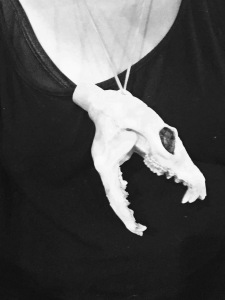
Tucker’s screenshots of prior e-mails saved a lot of “He said/he said/she said” time. He was given a week’s extension, no penalty, to finish the paper. We were given every consideration as his family and it was made sure that we were satisfied. It was well-handled. We were very satisfied.
And then for the next week — the full week — I watched Tucker do nothing but write the paper, only stopping to eat and sleep.
This, again, was the paper that he had had only ten minutes to complete before I had asked, “Do you think it’s going to be done?”
He worked on it nonstop for another week.
What would he have done when the clock struck noon on the day the paper was originally due, if I had not said anything? Plan B’s, and damage control, are not easy for Tuck. Shifting gears is not easy for Tuck. The fact that he’d been put in a preposterous position by numerous people (none in cahoots, just none good at what they were doing) certainly never meant to him that he should stop writing the paper. When his “partners” failed to even communicate about their share of the work much less do it, he did it. When at the last minute one of them uploaded some small contribution to Google Drive, Tucker looked at it and refused to turn it in with his own work. He told the professor that they could go get it themselves, but that he would not actively participate in treating it as part of the project he was turning in.
I’m not sure that anything I’m writing puts across the most emotional element of all of this from my perspective, which is watching Tucker try to adhere to a system where he is Following Directions and Doing What He Is Told, and that he is more than happy to do that, but doing it does nothing but slap him back down. No matter how strictly he follows what he believes are the imperatives he is being given, he ends up punished for it. And this is heartbreaking. He can’t make a decision about when he’s been pushed too far and it’s time to deviate from the plan that has been laid out for him. He can’t let himself say “Enough is enough” and still believe he’s doing his best; but he will, eventually, just break. And sometimes, it could have been avoided.
The wonderful professor who gave Tucker the extension gave him the (to us, agonizing) time period of “Monday evening” to have it in. Ben and I repeatedly talked to Tucker about our definitions of “evening” and said he was not to go past 8pm. He had to turn in whatever he had finished, by then.
At 8:15 he was texting me from his room about something that needed to be changed, but once he did that, he was uploading it, he was sure…
And it did happen. It really did. He turned it in.
Three hours later, finally relaxing and hanging out, he said, “It’s a shame that that whole thing turned into such a fiasco. Because there was a lot of information in that research that was really interesting…”
You know that moment in The Godfather when Michael is hiding out in Sicily, and he realizes that his bride Appolonia is in the car where the bomb meant to kill him is? And how he just has that one moment to scream “NO!” before he watches it explode?
But of course Tucker wanted to talk about the paper. He tended to this research material like one would an abandoned baby bird. For literally weeks. He did nothing else. And even when he was able to hand it off — he didn’t let go. Because it matters to him.
He’s doing his life’s work, but why should it have to be so unnecessarily hard?
“The challenge with Dragon and putting time into it is somewhat akin to talking on the phone,” Tuck has told me. “I know there’s a lot of patience that will have to go into doing this.”
Dragon hasn’t been the magical answer, but it’s not a dead end either. It will be more useful for academic writing than any other kind in the long run. Tuck’s been doing some non-academic writing (more personal, and headed this way), which, with no hard deadlines, is achievable, albeit slow. I see the tremendous difference personal writing makes in his peace of mind, and sense of self. I am glad we are writing, and reading.
Save
Save
Save
Save
Save
Save
Save
Save
